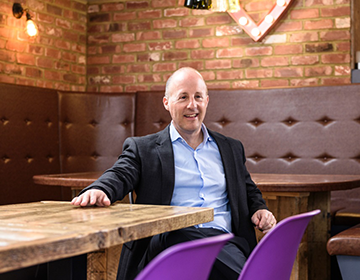Chancellor George Osborne's decision to delay the new capital gains tax (CGT) charge on foreign property investors could prompt a flood of sales and force down prices in London over the next year.
As widely expected, Osborne announced in yesterday's Autumn Statement that non-residents who sell UK property will have to pay CGT on their profits, bringing the UK in line with many other countries.
But the so-called "oligarch tax" won't come into force until April 2015, and will only target future gains. This means many foreign investors who have made massive gains will still escape CGT.
In the interim, a flood of properties could hit the market as foreign investors look to avoid the charge, forcing prices down, experts predict.
Nilesh Shah, senior tax partner at London chartered Accountants Blick Rothenberg LLP. “London property prices may fall if non-UK residents take advantage of their 15-month window to sell their UK property before having to pay CGT."
What happens partly depends on whether the government intends to rebase property values from 2015, said Naomi Heaton, chief executive of the London Central Portfolio. "If it does, CGT won't have a dramatic effect, but should values not be rebased, this may orchestrate a flood of non-resident owned properties to come to market, as they take their profit before being taxed on it."
Heaton said this could have "a positive flipside" in prime central London, where around 70% of properties are foreign owned. "This could represent a buying opportunity not witnessed since the house price crash of the credit crunch.
"As property sales flood the market, prices will undoubtedly fall slightly due to increased stock. Once this tax is psychologically absorbed, these buyers will benefit from the price cuts and future price appreciation as patterns return to normal."
Fionnuala Earley, research director at Hamptons International, also expects the prime London market to cool. "With prices currently sitting around 40% above peak levels in 2007, prospects for global economic recovery improving and yields on other assets becoming more attractive, foreign investment is being pulled away from prime London housing.”
Peter Rollings, chief executive of estate agent Marsh & Parsons. "With the change only being introduced in April 2015, we may find a short-term rush for tax-free sales before the policy comes into effect, helping to boost supply and fluidity at the highest level.
"London is still a much more attractive and easier place to buy property than many other cities around the world, and demand for the best properties will remain fierce.”
But Liam Bailey, head of Knight Frank Global Research, said the impact would be marginal, as tax is not the primary driver for most international buyers.
"It is important to note that the change to CGT rules brings the UK in line with other key investor markets, such as New York and Paris, where equivalent taxes can approach 35% to 50%, depending on the owner’s residency status."
Greater London will be less affected, as foreigners account for only 12% of all new-build property purchases, Bailey said.
Mark Harris, chief executive of mortgage broker SPF Private Clients, says: 'We await more clarity as to whether this will affect non-residents who have owned property in the UK for many years."
Karelia Scott-Daniels, managing director of buying agents, Manse & Garret Property Search, was confident that prime London would remain an attractive investment. "Given continued volatility globally, London is simply too stable an investment for internationally mobile individuals."












Comments